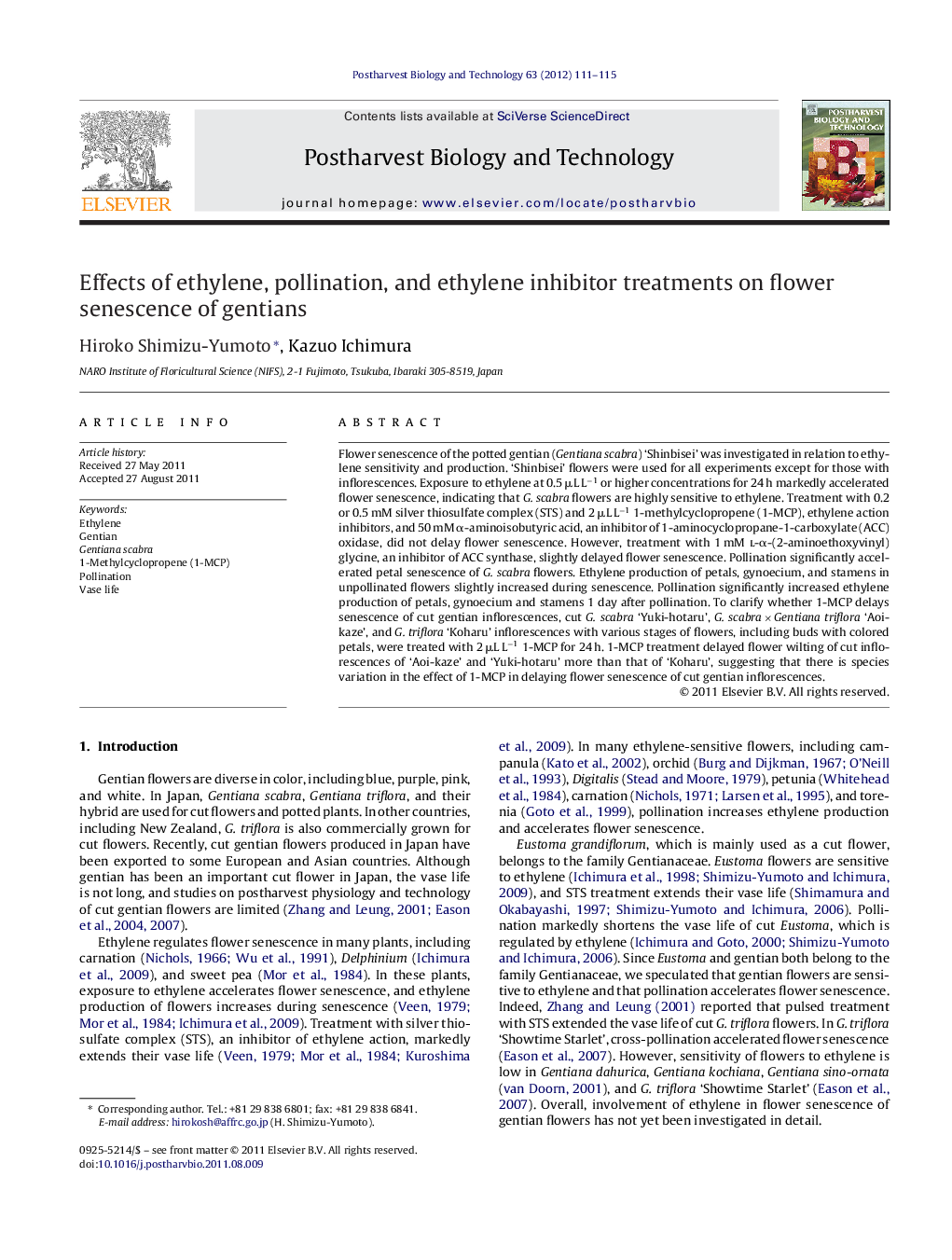| Article ID | Journal | Published Year | Pages | File Type |
|---|---|---|---|---|
| 4518734 | Postharvest Biology and Technology | 2012 | 5 Pages |
Flower senescence of the potted gentian (Gentiana scabra) ‘Shinbisei’ was investigated in relation to ethylene sensitivity and production. ‘Shinbisei’ flowers were used for all experiments except for those with inflorescences. Exposure to ethylene at 0.5 μL L−1 or higher concentrations for 24 h markedly accelerated flower senescence, indicating that G. scabra flowers are highly sensitive to ethylene. Treatment with 0.2 or 0.5 mM silver thiosulfate complex (STS) and 2 μL L−1 1-methylcyclopropene (1-MCP), ethylene action inhibitors, and 50 mM α-aminoisobutyric acid, an inhibitor of 1-aminocyclopropane-1-carboxylate (ACC) oxidase, did not delay flower senescence. However, treatment with 1 mM l-α-(2-aminoethoxyvinyl) glycine, an inhibitor of ACC synthase, slightly delayed flower senescence. Pollination significantly accelerated petal senescence of G. scabra flowers. Ethylene production of petals, gynoecium, and stamens in unpollinated flowers slightly increased during senescence. Pollination significantly increased ethylene production of petals, gynoecium and stamens 1 day after pollination. To clarify whether 1-MCP delays senescence of cut gentian inflorescences, cut G. scabra ‘Yuki-hotaru’, G. scabra × Gentiana triflora ‘Aoi-kaze’, and G. triflora ‘Koharu’ inflorescences with various stages of flowers, including buds with colored petals, were treated with 2 μL L−1 1-MCP for 24 h. 1-MCP treatment delayed flower wilting of cut inflorescences of ‘Aoi-kaze’ and ‘Yuki-hotaru’ more than that of ‘Koharu’, suggesting that there is species variation in the effect of 1-MCP in delaying flower senescence of cut gentian inflorescences.
► Gentiana scabra ‘Shinbisei’ flowers were highly sensitive to ethylene. ► Pollination shortened the vase life of G. scabra ‘Shinbisei’. ► Treatment with 1-MCP delayed flower wilting of cut G. triflera, G. scabra, and their hybrid inflorescences. ► There are variations among species in the effect of 1-MCP.
